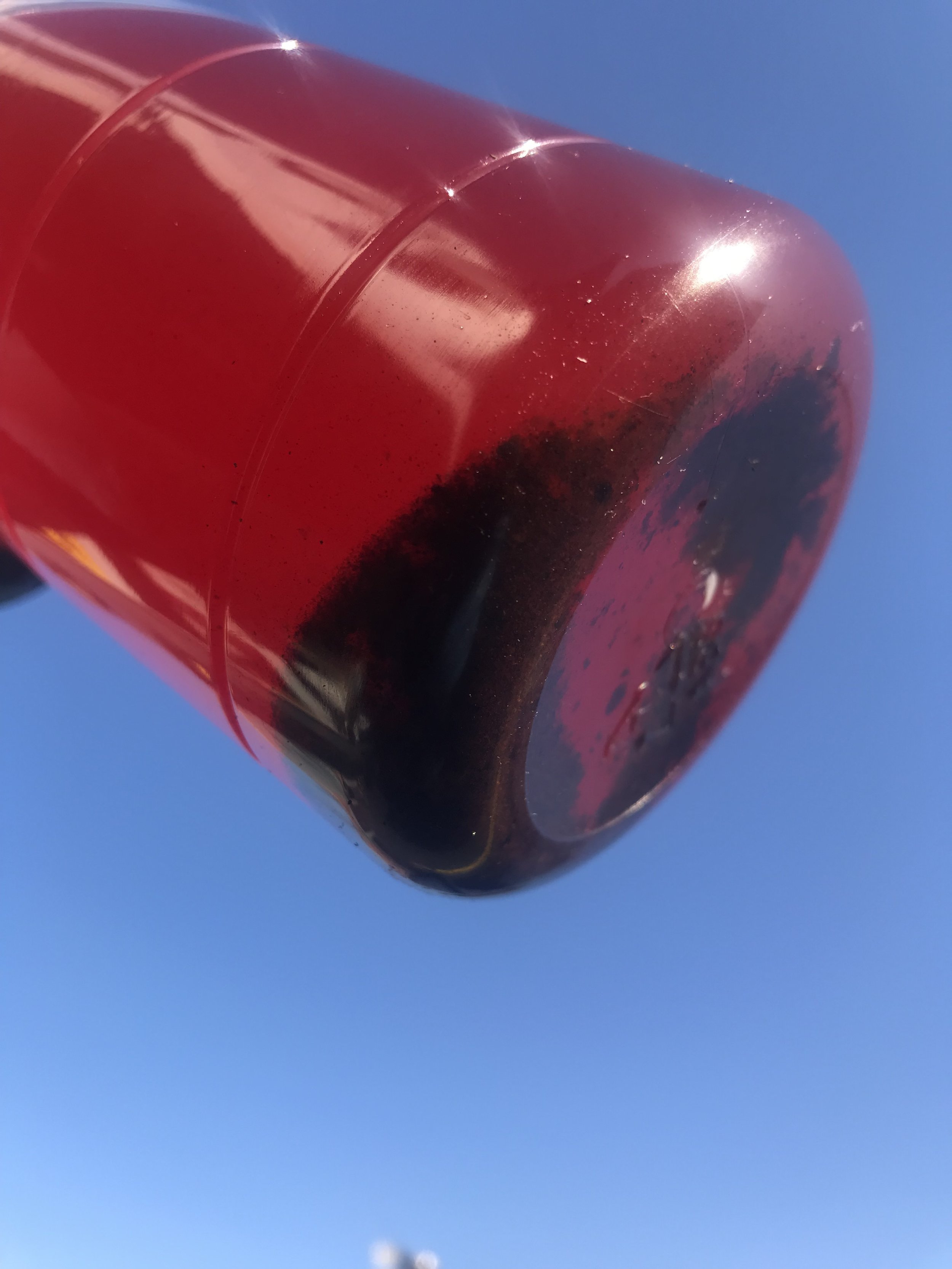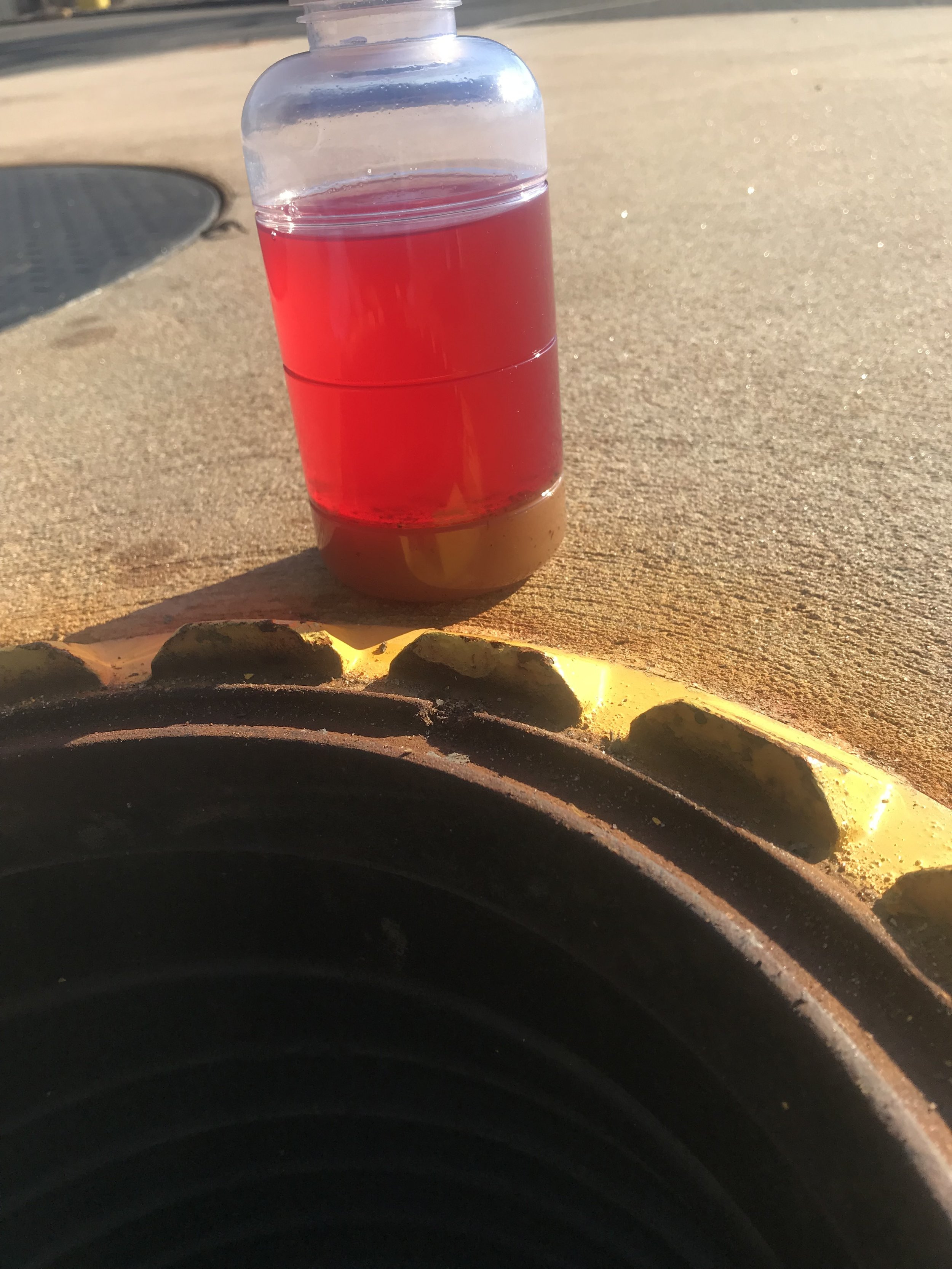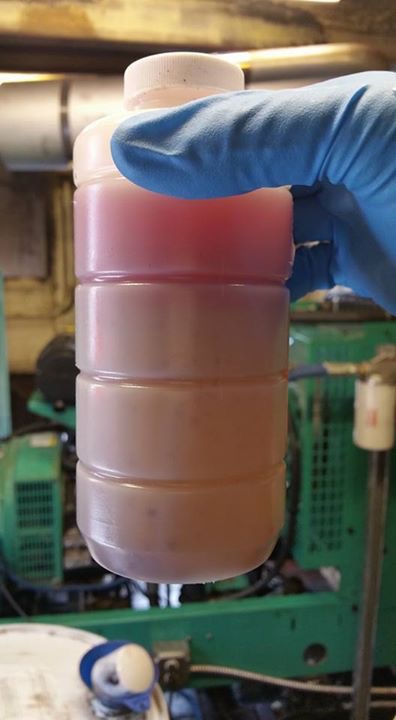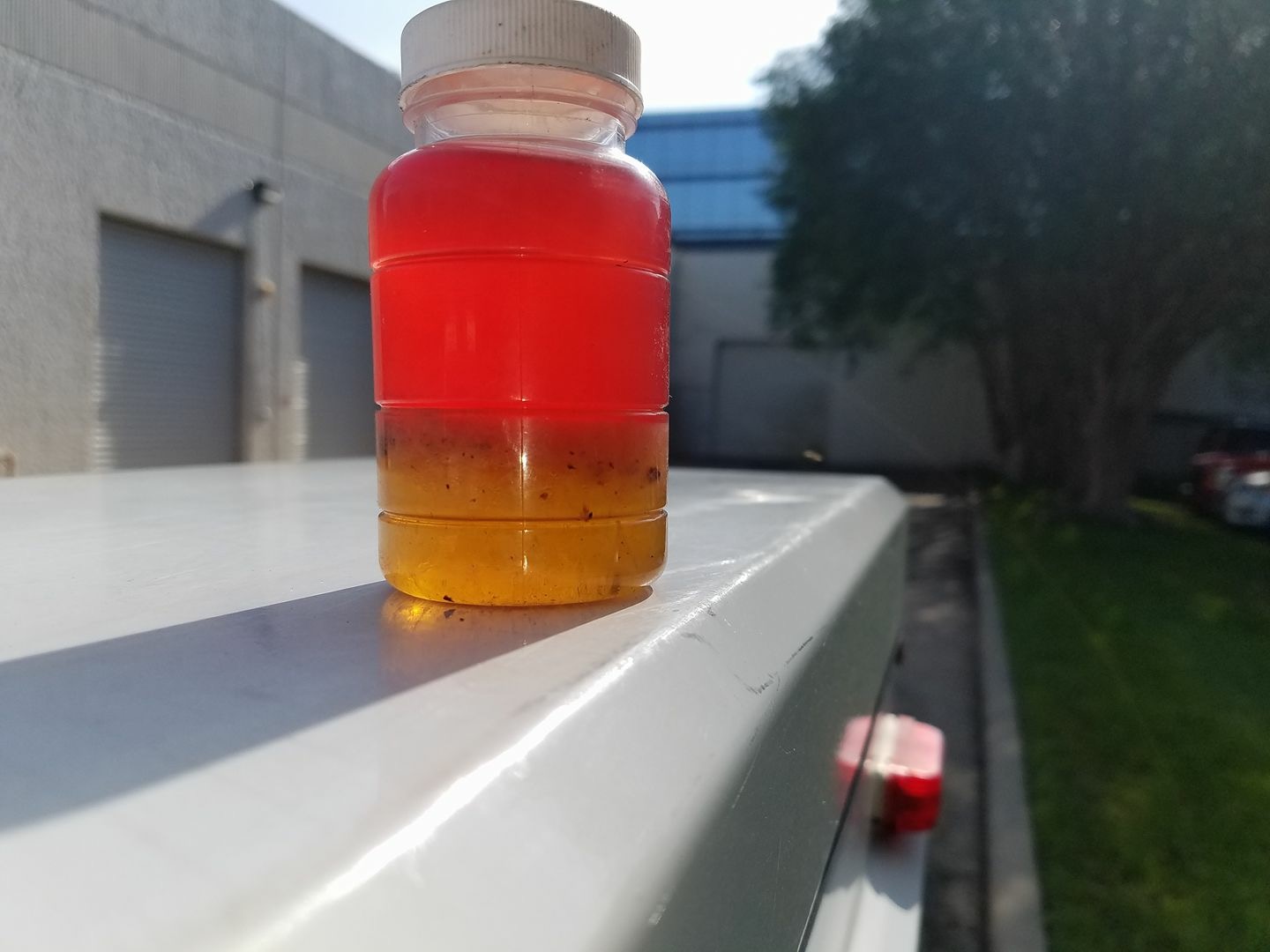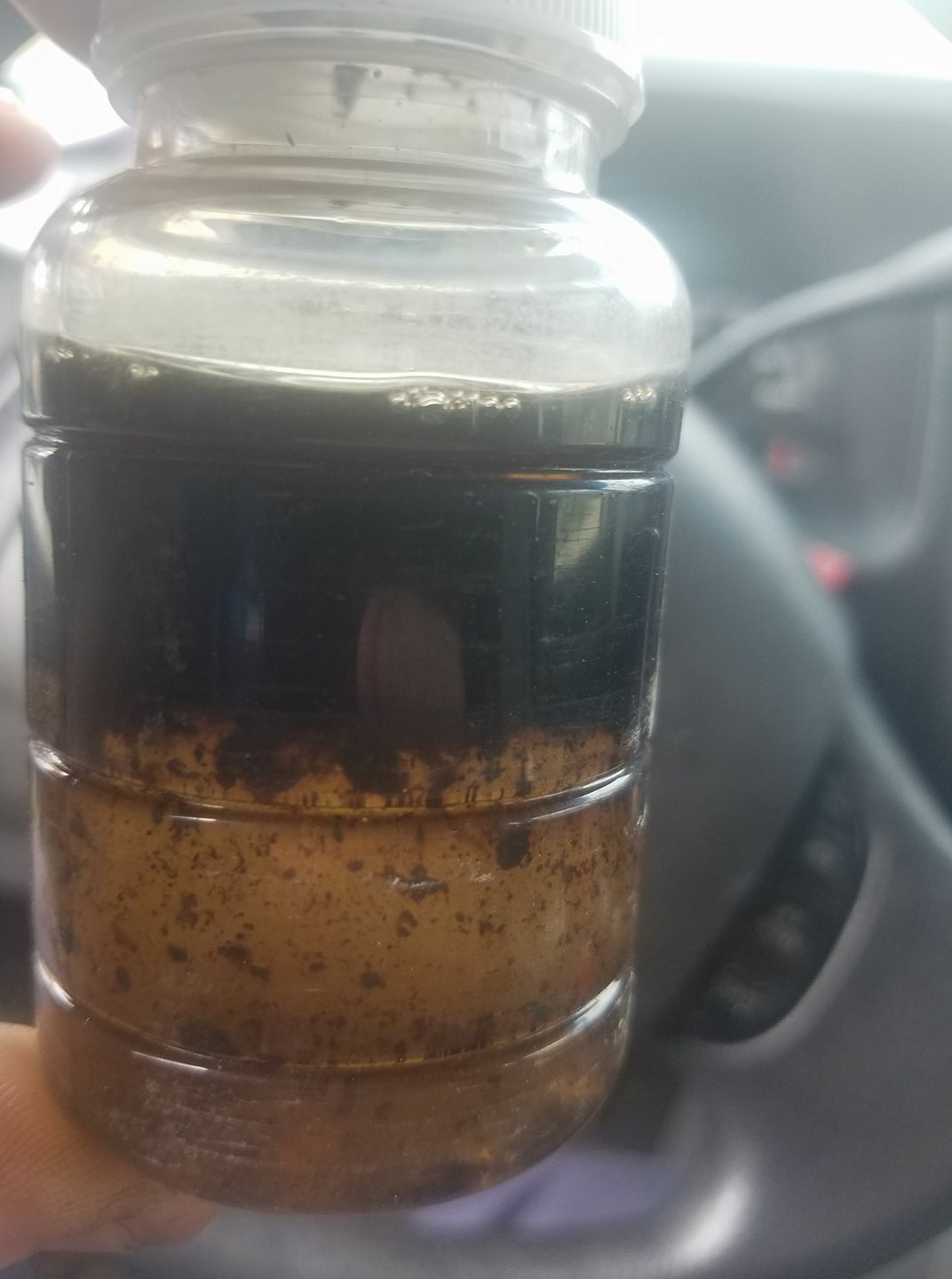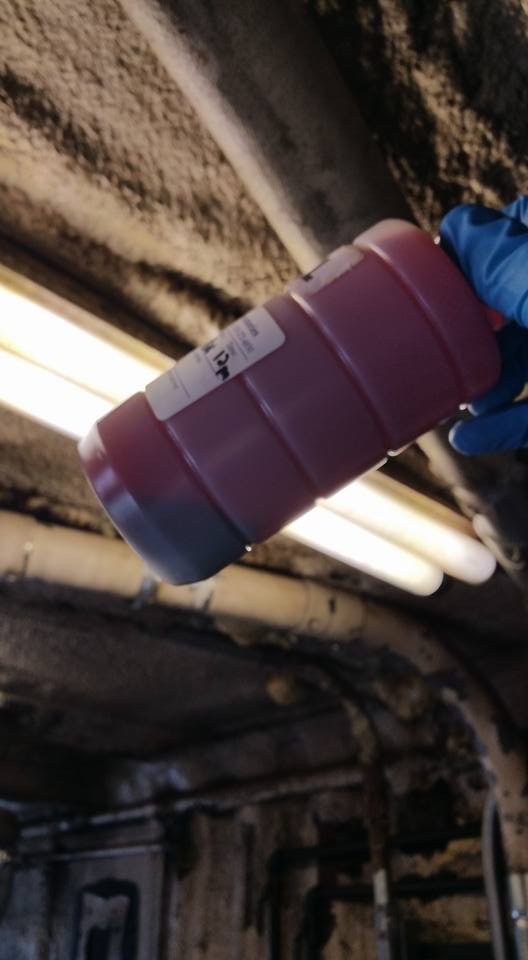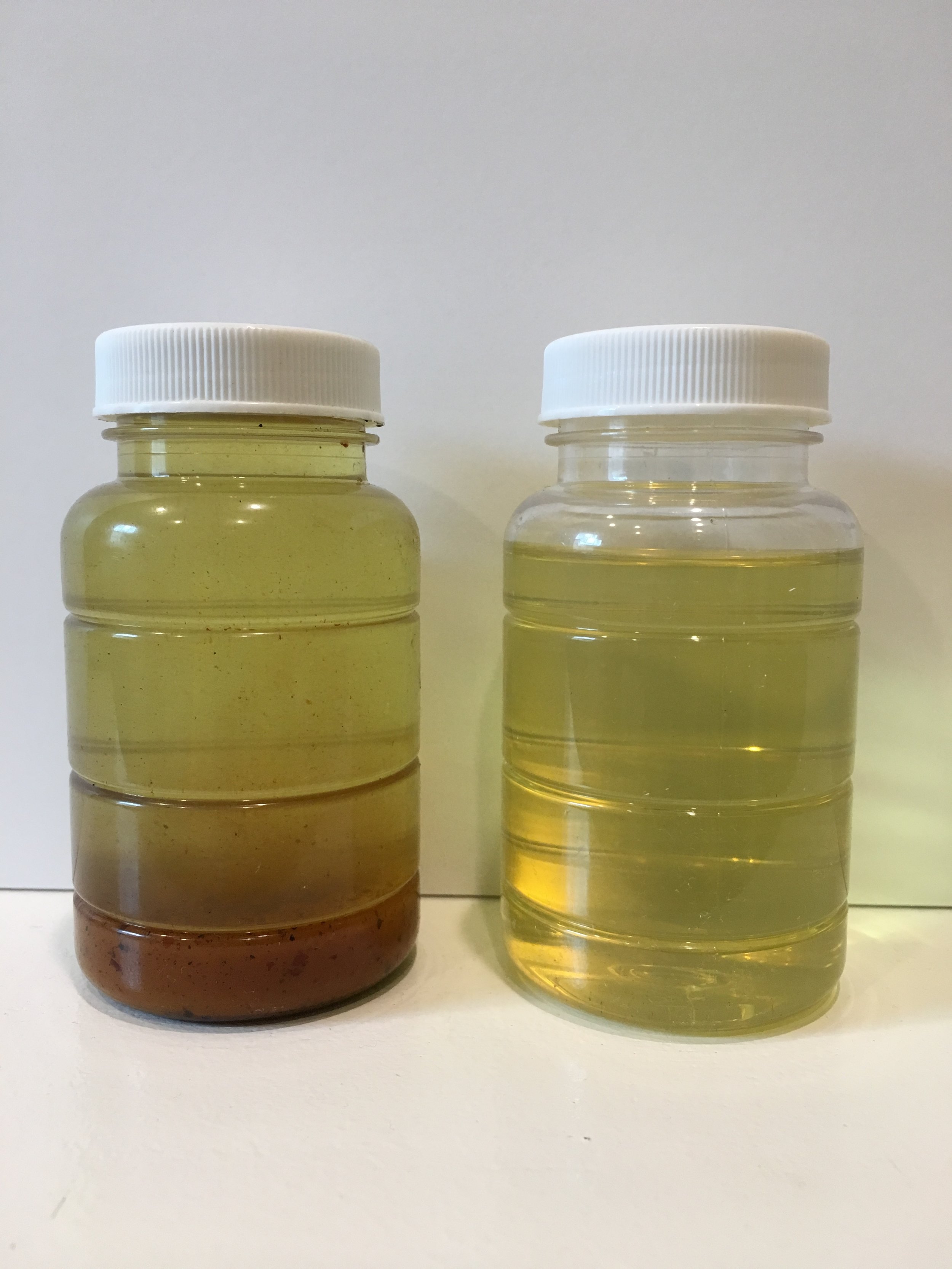Dirt, sludge, algae, water? Diesel Dialysis can help!
Water Is The Enemy
Does the fuel in your tank look like this? Don't worry, we can fix it! This is a sample taken from an above ground storage tank. The microbial growth is also visible here. Keep the fuel dry and the microbes can not grow.
Bio Diesel
This is an example of what happens, when your fuel supplier adds bio diesel to your fuel. Left untreated, it will quickly break down. Solids and varnish will accumulate on anything touching the fuel. This is a level control float that stopped working due to the solids collecting on it, and causing the float to "stick". This float caused a spill and very expensive clean up, due to the main fill pumps not shutting off. This fuel was present for only 2 years without being treated. This spill was preventable.
Sludge and Dirt
Don't believe you could have a problem? This is a cut open primary filter, from the first stage of the fuel polishing process. The customer believed they had a good fuel supply because they never had a "problem". The only real problem was ignoring the fuel in their tank for the past 7 years. They are now a happy Diesel Dialysis customer who no longer ignores their most important and valuable asset in their emergency generator system.
The only way to know if you have high quality fuel, is to sample it, and test it. Do not assume it is ok, this could be the biggest mistake you make.
Is your fuel supply ready for the next disaster?
A very common misconception is that diesel fuel is "good for life". That belief is nothing more than a myth. While it is true that diesel fuels of the past did have a long shelf life, todays ULSD and Bio Diesel blends do not. Many end users in the electric power industry have found out the hard way. Poor fuel maintenance will lead to clogged fuel filters, poor performance, untimely genset shutdowns, and fuel system damage.
Stored diesel fuels will start to present symptoms of degradation in as little as 3 months. Most stand by genset applications see very little use while still having the need for a large fuel supply on hand at all times. This allows fuel to age and before you know it, the formation of sediments, bacteria, and water to appear while the oxidation process has begun. Without proper maintenance, the critical energy source for an emergency generator system becomes unreliable.
A few things to consider:
- Has your fuel supply had samples taken from the bottom, middle and top of your tank to properly evaluate the fuel quality?
- Have growth inhibitors and fuel stabilizers been added to reduce or eliminate the effects of fuel in storage?
- Does the fuel supply have its own filtration system? Or does the fuel supply have a trained and experienced maintenance professional to look after it?
- Has the tank itself had a thorough inspection, by a qualified and experienced technician?
If you have answered NO to any of these questions, it is time to give us a call to discuss how we can help you.
contact diesel dialysis today!





